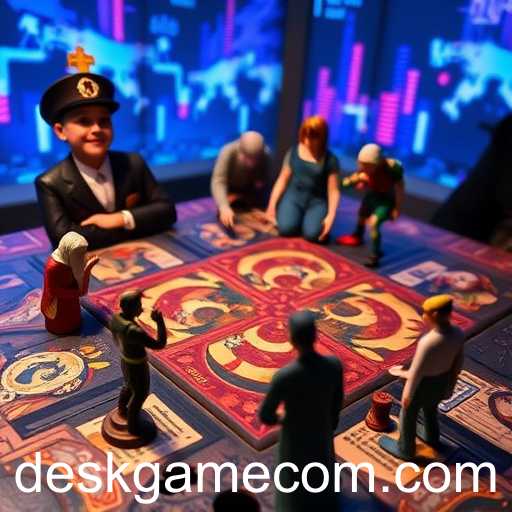Exploring the growing fascination with desk games in the digital age and their cultural impact on gamers worldwide.
In recent years, the gaming industry has seen a remarkable shift as desk games increasingly capture the attention of both casual and avid gamers. As we navigate further into the mid-2020s, a time traditionally dominated by high-tech digital games, this resurgence of physical tabletop games is both surprising and refreshing.
The term 'desk games' not only refers to the traditional board games like chess, Monopoly, or Scrabble. Instead, it encompasses a wide variety of tabletop experiences that combine storytelling, strategy, and social interaction, appealing to a modern audience longing for tactile engagement. Sites like Deskgame have become communal hubs where fans can celebrate their passion for these games.
The popularity of desk games may be seen as a counter-cultural movement against the overwhelming presence of screens in our daily lives. Analysts suggest that this resurgence is fueled by a nostalgic longing for simpler times when games involved face-to-face interaction rather than through a digital interface. Furthermore, desk games offer a form of escapism that is not only immersive but also encourages unplugging from the frenetic digital world.
Another dynamic fueling the growth in desk games is the inclusivity and diversity of themes now available. Modern designers are exploring a wide variety of cultures, histories, and stories, providing representation and educational elements that many digital games still lack. This makes them appealing to gamers seeking more than just entertainment but also knowledge and cultural understanding.
With this growing interest, conventions and events centered around desk games are on the rise, creating new opportunities for community building, shared experiences, and economic growth within the gaming sector. Game developers and designers are adapting their approaches to tap into this trend, bringing innovative ideas and textures to the genre.
Looking ahead, the future of desk games appears promising, poised to coexist alongside digital entertainment, offering a complementary form of enjoyment. As digital fatigue sets in for many, the tangible, social, and educational benefits that desk games provide seem likely to secure their continued rise in popularity, carving out a significant niche within the global gaming community.




